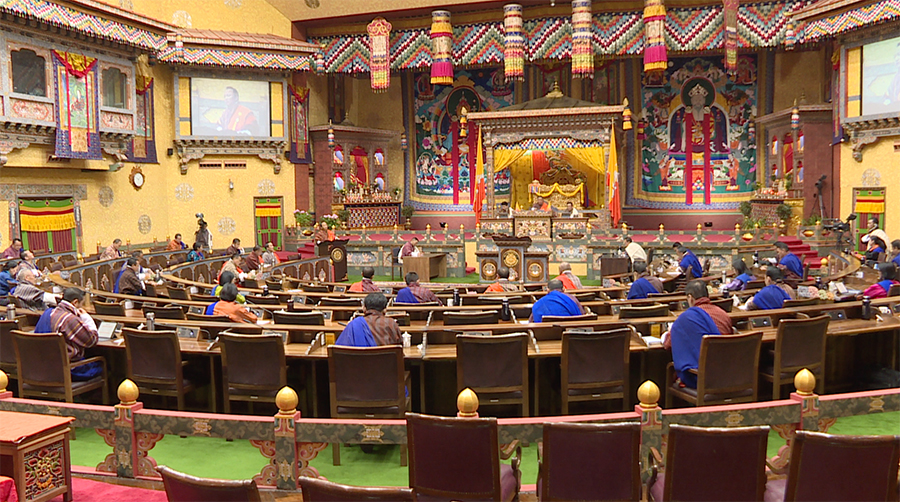
The Sixth Pay Commission has recommended a revision of 50 per cent of the minimum pay scale across all position levels in the civil service and public servants. It has also recommended that the Royal University of Bhutan, Khesar Gyalpo University of Medical Sciences of Bhutan and Jigme Singye Wangchuck School of Law move to a clean wage system. The 6th Pay Commission was constituted to review the pay and allowances of public servants and propose a revision to meet the rising cost of living. The Pay Revision Bill was introduced in the National Assembly today.
Upon adding the recommended pay revision and the incremental raise from the Pay Structure Reform Act of Bhutan 2022, the total revision for civil servants is 55 per cent for cabinet and government secretaries and executive and specialist level or EX-level. It is 58 to 62 per cent for professional and management or P-level, 63 to 70 per cent for supervisory and support or S-level, and 70 to 74 per cent for operational or O-level.
And for public servants, the commission proposes a revision of 50 to 55 per cent for Members of Parliament including the Prime Minister and Ministers, the judiciary, the holder and the members of constitutional offices, the Privy Council and Thrompons.
For other local government officials and NFE instructors, ECCD facilitators, ESP and GSP, the revision ranges from 58 to 76 per cent.
According to the pay commission’s report, given the critical need to retain health sector professionals, the Commission recommended additional revisions to professional allowances ranging from 55 to 80 per cent.
The commission has also proposed a 45 to 60 per cent increase in the allowance for Sowa Rigpa Dungtshos specialists in addition to the pay hike.
And against the backdrop of reforms in the education sector, the Commission supports shifting the existing teaching allowance from a purely tenure-based scheme to a more comprehensive Competency Based Incentive scheme. The proposed incentive starts from 35 per cent to 65 per cent.
“The new thing in the pay revision bill this year is that the Royal University of Bhutan, Khesar Gyalpo University of Medical Sciences of Bhutan, and Jigme Singye Wangchuck School of Law were excluded from the Pay Commission. However, this time is included in the clean wage system,” said Finance Minister Namgay Tshering.
Amid the introduction of the Pay Revision Bill, MP Ugyen Dorji highlighted the need to monitor exorbitant increases in prices of commodities and house rents due to pay revision.
“One of the people’s concerns is that whenever there is a pay raise, the prices of the commodities increase along with the house rents. So, will the government be able to stop this? Apparently, this pay revision will benefit the public servants, but what about those working in the private sector,” said Ugyen Dorji, Dewathang-Gomdar MP.
The annual financial implications from the proposed revision are estimated at Nu 6bn. The report states it will be funded, in part, through a one-time top-up from Druk Holding and Investments Limited.
Meanwhile, the commission recommends the implementation of pay, allowances, and benefits with effect from the next month.
Kinzang Lhadon
Edited by Tshering Zam







